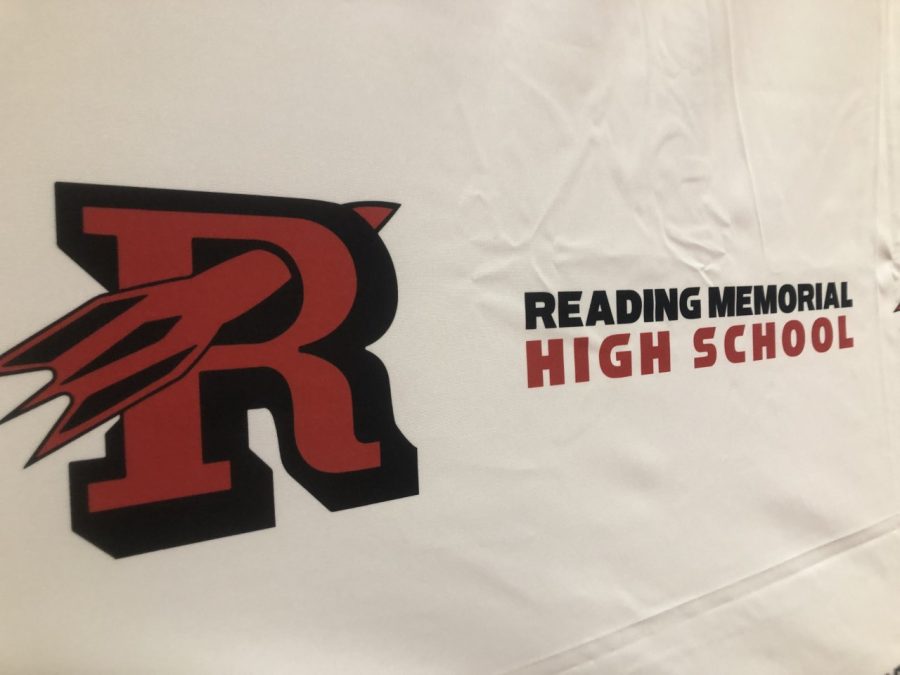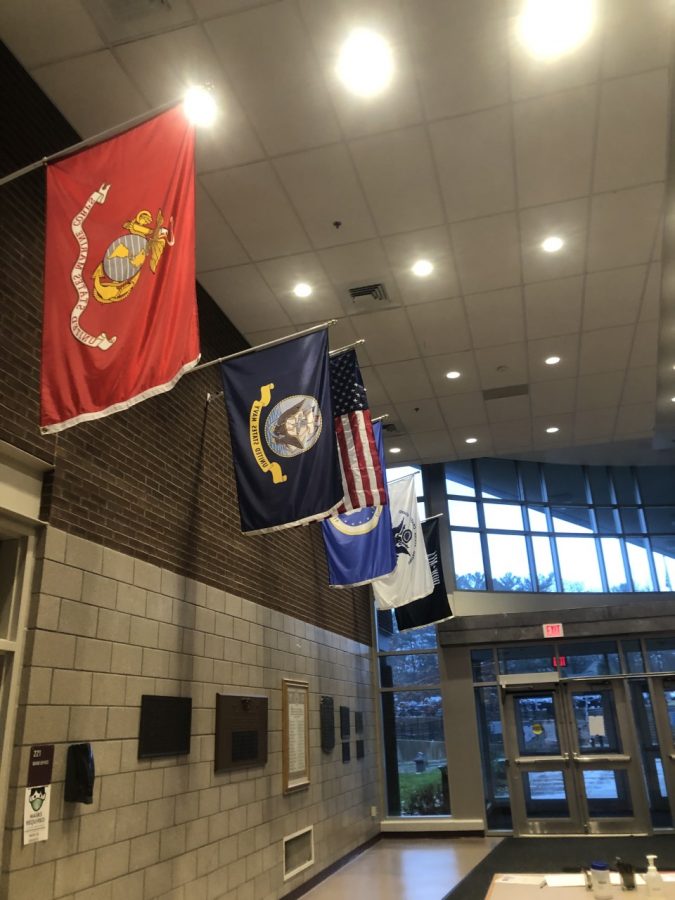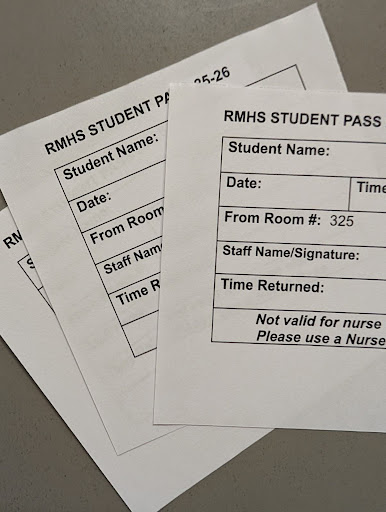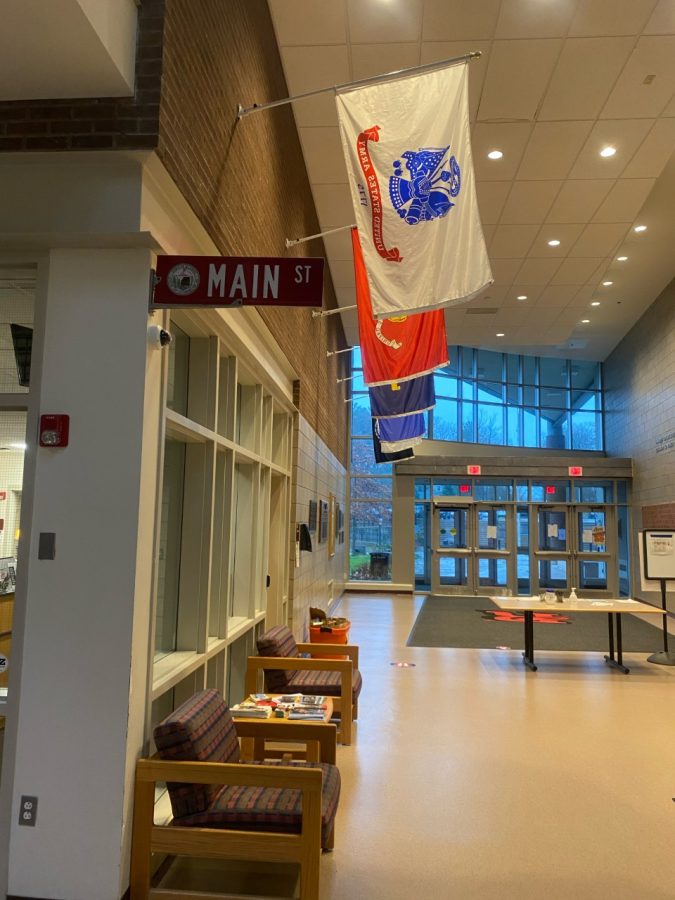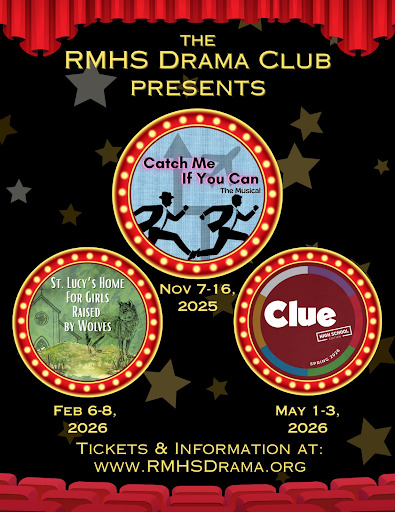Seniors enrolled in the first semester Honors Journalism Elective with Mrs. Clawson interviewed veteran RMHS teachers about their FIRST experiences teaching in Reading and how things have changed over the course of their career.
How was your first year teaching compared to now?
Mr. d’Entremont, Social Studies:
My first year teaching was very exciting. It was back in 1996, I think before you you folks were born, and maybe your parents as well. But it was a very different time. Teaching was different. There’s a new building now, but there were old buildings then, so it was different as well. Different room, different feel. That is when the rooms didn’t even have a telephone in it at the time. I had one computer, kids didn’t have computers yet. Really, cell phones were kind of eh, not really a big thing yet, if you will. We had no smartboards. We had chalk and overhead projectors and TVs to show videos on VHS tapes, those big tapes as well. Technology has come a long way.
Ms. Donahue, World Language:
Okay, so I’m very old, so my first year of teaching was 1987. That school year, and it’s very different as far as respect that students give to teachers. In general, though, I think kids are kids. And there are many kids that have acted the same way throughout time. But overall, the lack of respect is very different. The curriculum is different too. Last year, for example, I had one particular class where the behavior was so bad. It’s the slowest I’ve ever gone in any class in 25 years. And I think overall, from even the first thing here, this is my 19th year in reading, the curriculum is so watered down compared to what it used to be. And I have my opinions on why that is.
Mr. Cabanas, Science:
It was very different, but mainly because I started teaching in the Lawrence school district. And after the first year, I changed to more affluent school districts and there was a big, big difference. So, I don’t know. During the first year, I had to learn a lot about classroom management. I had to learn about how to deal with the students. I had also to craft how I communicate the information, because I know the information, but it’s not the same how to communicate it out there. And the students that I had were very, very difficult with very difficult personal problems. They didn’t want to be in a school. They had a lot of problems out of the school, so it was really like a different type of student to deal with.
Mr. Mahoney, Social Studies:
I actually started off as a para since I didn’t know if I wanted to be a teacher. You definitely learn a lot about organization and routine and it definitely got a lot easier I would say. When you start out, you challenge yourself to do more as time goes on. The curriculum has changed too. When I started actually teaching history, it would be good to get through the end of the Cold War, but now my goal is to get into Modern America, and wrap everything up from the whole year into the present day context. We actually cover more ground, so there’s a lot more timing and pacing involved, but there’s a lot more modern content.
Mr. McIntire, Math:
My first year teaching was totally frantic. I would go home each day and plan the next day and I do that for the entire year. This year is much less frantic. I always try new things but I have much more of the time planned out ahead of me. Back then I thought my only job was to say all the chemistry or physics correctly so that the kids would learn and to give enough homework so the kids would practice it. But it’s a lot more than that now and that’s only a little part of my job. Now a lot of it is getting to know my students, and learning what their needs are in the classroom.
Mr. Fiore, History:
Dramatically different. So my first year of teaching was in 1993 at the Martin Luther King Junior Middle School in Boston and Dorchester, MA. It was seventh and eighth grade social studies. It was a very different school, no computers in the classroom, no internet, no cell phones. Probably one TV/VCR for the entire cluster, which is what they call a middle school team in Boston. I mean, the issues confronting King Middle School were very different from the issues confronting, you know, either Reading middle schools or RMHS at the time. It was much more diverse. I was probably one of, you know, 15 Caucasians in in a building of roughly 500-600 people. So it was a completely different experience then what’s happening right now.
What do you wish you knew at the beginning of your teaching career that you know now?
Mr. Hatton, Science:
I suppose I wish that I’d known, a little more of when to kind of push back against the, you know, certain policies or are certain behavior, and then just like, you know, when it’s ok for me to let things slide.
Mr. Mahoney, History:
Organization and pacing when you’re young is kind of just going class by class day to day and you really can’t be told other than through experience but understanding how to drag assignments out or keep them concise and move on. It’s definitely something that would’ve helped me. I feel like my ability to work with kids and teach has been there, but it’s really just the logistics of teaching so you don’t find yourself swamped or overwhelmed at times.
Mr. McIntire, Math:
Oh so many things, let’s try and pick one. I think um don’t try to do too much. In general but also in teaching. I try to make big improvements each year, and I think I should be more modest about that.
Mrs. Dalby, Science:
That there’s always going to be something that comes up that, like sidesteps you during your day, that you have to kind of just roll with. So, like, the easier you get to, like, just take a deep breath and say, okay, I’ll deal with that later, let’s focus on what’s in front of me now. The like easier it will be on like your stress level because you can always like put out a fire or deal with something later. But like you have to multitask. So like just learning to flow with things a little bit more. But I don’t know that I could have changed that at the beginning. It’s kind of like by experience, you have to kind of get better at that.
Mr. Cabanas, Science:
I think what I learned over the years is that just because you put in a lot of passion, things won’t always go better. Like I always had a passion for teaching and I wanted the students to learn, but sometimes you had to give them a space for them to realize that they also need to want to learn. So it’s not me putting a ton of effort and a ton of passion and then being frustrated because people don’t follow through. So I think to take things a little easier and be like, look, this is what I have to teach you. The student has to be on board with that, so it will avoid a lot of frustrations on my side.
Mr. Blanchard, History:
I think I’m much more patient now and much more calm and level headed than I used to be. And I guess that just comes with aging and experience.
Ms. Donahue, World Language:
As far as teaching. Yeah. Okay, my negative response is, I wish I knew that I would make less money every year because my pay in the very tiny raise you get doesn’t keep up with inflation. So I’d literally make less money every year based on the economy. I wish I didn’t love teaching so much. I wish that I chose where I teach based on what you get paid. So there’s the monetary end of it.
But as far as teaching goes, I don’t know, you always wish you had, like, a crystal ball. Yes. I wish that I knew every year you learn more about students and what they need, right? But I think I’ve always been pretty intuitive to finding the kids that need help, but that won’t ask for it. But I guess I wish I knew more about what resources were out there to help kids. I wish I knew more about two areas. One is dyslexia. I wish I took more courses in that and how to be helpful with that. I wish that I could help build up something for more support for emotional health for kids. I think schools are overall doing that.
Knowing how the classroom was before phones, do you prefer phones or no phones?
Mrs. Dalby, Science:
Oh, I definitely prefer no phones. I don’t use hate very often at all in my speech, but like, I hate them. I have a 13 year old son at home and I hate them at home. I just think that like developmentally, like it’s hard for all of the students to be able to like prioritize, like, what’s going on in front of them. And the FOMO that goes on with the social stuff that is developmentally the most important thing for a lot of students. They have a hard time being able to set boundaries for themselves. And I don’t blame them because developmentally, that’s like where they are. It just makes it so much harder to get learning across and get focused.
Mr. Hatton, Science:
I would say for the most part, not having phones was like, better in terms of engagement and like, the ability to stay focused. Um but like I feel that we’ll figure out how to manage it. And so… like it works sometimes, sometimes not, but I don’t like to act like these things don’t exist and you’re not going to have to manage it and your real life anyway, so like, they’re fine. They have their uses, and just finding what those uses are may be actually beneficial.
Mr. d’Entremont, History:
No phones, no phones. Absolutely not. And I’m very excited about it. I’m in the twilight of my career. I only have three more years to go. So it’s been a long time coming. It’s just a distraction for everybody. For teachers, for everyone. It’s as simple as that. Some people are addicted to it, they can’t function without it, you know, all that stuff, and that’s how they’ve been brought up, and it’s sad because of the situation where they are just addicted to it. And so in my policies, I collect it every day. I have a box. I’ve been doing it for 15 years, whatever it is, and just go around, pick them up, put them over there, teach at the end of the class, go around, reverse order whatever. That’s right on top, and then just quickly, boom, boom, done, and then they leave. So it’s just so much better.
What I usually tell kids is that it’s like in the old days when you were expecting something in the mail, like a letter from a pen pal or something like that, right? And every day, you would expect it coming, and you would run out to the mail, the mailbox when the mail comes, and you would open up and you’re like, ah, and it’s not there. And then the next day we do the exact same thing, the exact same thing. Now multiply that by texts. Even if it’s off and it’s in your pocket and it vibrates, you’ll be like, oh, I got to check it right? And then, oh, it’s just an ad, whatever, and so forth. But it doesn’t matter. It’s like that, that anxiety every single time it goes off, you need to check it. And that goes for everyone. But it’s out of sight, out of mind, you get the focus and all that stuff.
So what’s going to happen next year? I don’t know. But it looks like it’s (proposed legislation) going to pass, right? So it doesn’t affect the seniors this year because next year it might be going to go into effect. What’s it going to be like? We don’t know. Is it going to be a law? Is the state going to come up with a certain policy? Is it up to the individual schools? I have absolutely no idea, but I think it’s for the best.
